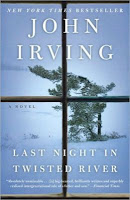The best part of this collection of stories, and novella, is that they all start in the middle. You're thrust into what often become unusual life situations, frequently at an uncomfortable point, watching uncomfortable things happen. It's fantastic.
You also don't really get any endings. Maybe a partial conclusion, but nothing that leaves you feeling complete. I love that too, because really, when is a person's story ever actually over? Even after many are gone, stories continue to evolve and change. It's real.
Nothing was cliched or forced either, leaving you with a catalog of character who were pleasantly complex if not a little strange. I appreciate, very much, the care that went into each story. You can feel it at every angle from the character development to the setting choices to how each scenario is shaped. It's true storytelling even without an obvious formula.
Bonus points also go out for the skill in where the backstory gets placed. Its unconventional use influences the present perfectly, especially in the novella.
Everything about how these stories were crafted felt right. You were supposed to go into them a little 'off,' whether the story discussed an issue related to race or explored the repercussions of personal choices. After finishing each story, I found myself wanting to spend time speculating on where they went afterward rather than diving into the next one immediately.
To rate my favorites, while suggesting you read the whole book in order, I loved:
- Anything Could Disappear
- Alcatraz
- The Office of Historical Corrections (the novella)



















